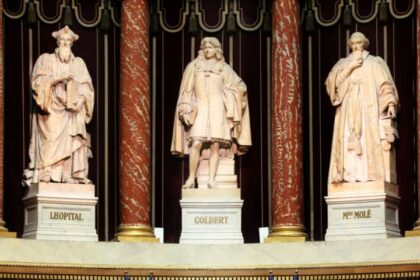The United Kingdom’s Constitution is a unique and complex framework that governs the legal and political structure of the UK. Unlike many other countries, the UK does not have a single, written constitutional document. Instead, it has an uncodified constitution, composed of various sources, including statute law, common law, conventions, and works of authority. Here’s a breakdown of its key components:
Sources of the UK Constitution
Statute/Acts of Parliament
Legislation passed by the UK Parliament with constitutional significance, such as the Magna Carta (Great Charter) (1215), the Bill of Rights (1689), and the Parliament Acts (1911 and 1949).
More recent Acts of Parliament include the Human Rights Act 1998 and the Scotland Act 1998.
Common Law/Case Law
This is based on judicial interpretations and pronouncements. It is developed over time through Court decisions/judgments. Such judicial decisions form part of the unwritten constitution.
It includes legal principles like habeas corpus, judicial review, etc.
Constitutional Conventions
These are unwritten practices and rules considered bindin. An instance, is the Prime Minister addressing the Parliament as a Member of Parliament or the Monarch granting Royal Assent to legislation.
Works of Authority
These refers to writings/publications by renowned legal scholars, authorities and experts which serve as interpretative guides . Example of such is a publication like A.V. Dicey’s “An Introduction to the Study of the Law of the Constitution” .
International Law
Treaties also form part of the UK Constitution. Treaty like the European Convention on Human Rights influence domestic laws, especially since the Human Rights Act 1998.
Royal Prerogative
This refers to some powers once traditionally held by the Monarch now being exercised by government ministers such as declaring war or granting honors.
Key Principles
Parliamentary Sovereignty
There are no special procedures for for changing, altering or amending a constitution itself in the UK like in Nigeria, the United States of America and some other countries. However Acts of Parliament can amend or repeal any law by simple majority votes in the Parliament. The Parliament is soverein because it can make or unmake any law, without being limited by a constitutional text.
No Parliament can bind future Parliaments.
Rule of Law
Everyone, including the government, is subject to the law. Nobody is above the Rule of Law.
The Rule of Law protects individual fundamental human rights and ensures accountability.
Separation of Powers
Functions of government are divided among the Executive (Government), Legislature (Parliament), and Judiciary (Courts).
These institutions maintain checks and balances.
Unitary State
The UK is a centralized state, though devolution has given Scotland, Wales, Northern Ireland, and some regions varying degrees of autonomy.
Recent Developments and Challenges Devolution
Acts like the Scotland Act 1998 and the Government of Wales Act 2006 have shifted powers from UK Parliament to the regional governments. These Acts gave Scotland and Wales greater autonomy in certain policy areas.
Brexit
The UK’s departure from the European Union (EU) highlighted constitutional questions, including the role of Parliaent in treaty-making and the repatriation of EU law.
Calls for Reform
Debates around codifying the constitution, reforming the House of Lords, and addressing the UK’s asymmetrical devolution continue to shape discussions.
Conclusion
The UK’s constitution is both flexible and adaptable, enabling it to evolve over time without formal amendments. However, this flexibility also presents challenges, particularly in terms of clarity and accountability. Its future likely depends on balancing traditional principles with modern political and societal demands.
The Fragile Backbone of British Democracy: Unpacking the UK’s Unwritten Constitution

Leave a Comment










